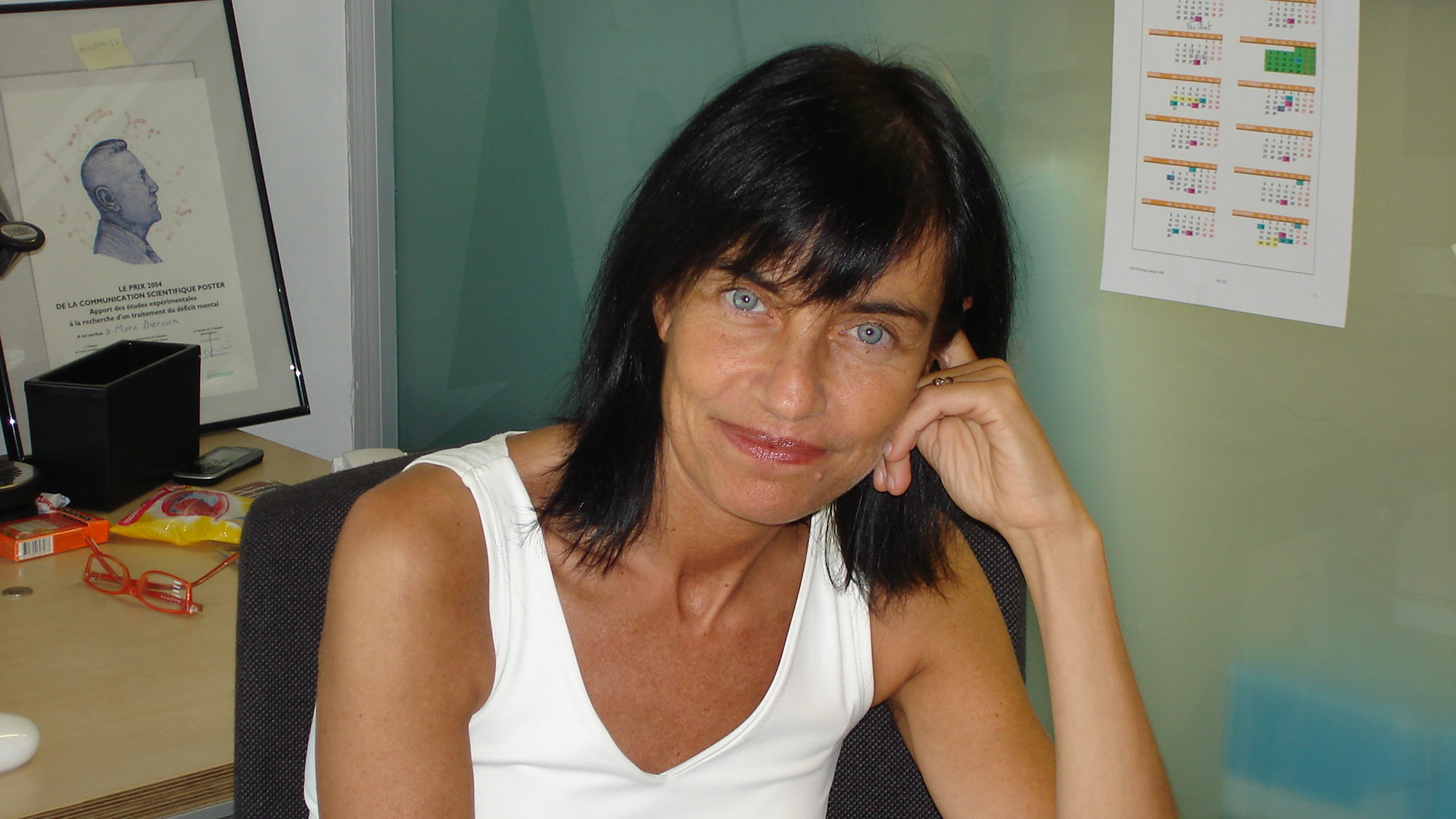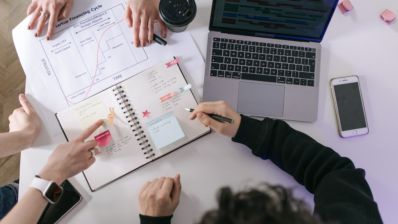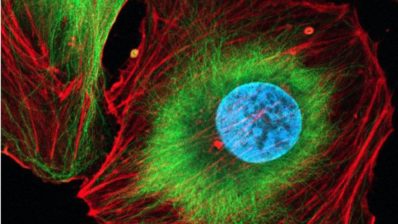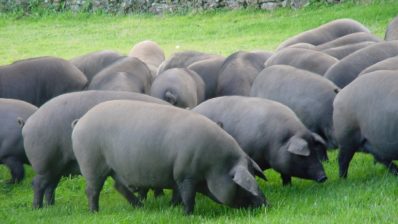The daughter of a painter and a neurosurgeon, Mara Dierssen has always known what she wanted to be. This 46-year old researcher is the head of a leading research group in neurobiology at the Centre for Genomic Regulation (CRG), teaches at three universities, organises many outreach activities, sings in a rock and roll band and has four sons.
When did you become interested in science?
You can tell a scientist from early on, we are the ones who always want to know everything… I was always fascinated by the nervous system, specially the big questions such as how do we keep memories, or why we feel emotions. After studying Medicine I did my PhD at the University of Cantàbria in neuroscience.
After a postdoc at the UAB I went back to Cantàbria to start my own lab. I started from scratch, but soon people arrived to work with me in mental retardation. It was a very productive period.
And then you came back to Catalonia…
Yes, to the Institut de Recerca Oncológica with Xavier Estivill, who had a very potent group in the genetics of Down syndrome (DS). These years were very good and I learned a lot.
From there you came to the CRG. What are your main research lines?
We basically study mental retardation, specially DS, and also neuropsychiatric diseases.
You are very much in contact with the people who have the disabilities you study – how do you value this?
We scientists cannot be detached form the reality we are studying. For me it is important to know that there are real people behind my research. And getting to know them helps one to understand better the disease. Also, I think we have a lot to learn from people with disabilities, from their attitude and willpower.
“We have a lot to learn from people with disabilities”
Mara Dierssen
It seems impossible that you have time to do everything – how is your typical day?
Tiring! I wake up at 4’45 am and I come to work: articles, meetings, experiments, classes, paperwork. I eat something quick in front of my computer and I try to leave at about 17’30 or 18h. When I get home I help my sons with their homework, we have dinner, chat a bit and I go bed at about 11’30 pm.
Do you think that research is an egalitarian world?
I think we are getting there, but it isn’t yet. The big decisions are still in hands of men, who occupy the majority of top positions. When I started it was even worse: before getting a contract they asked you whether you were thinking of having children, and that was a decisive factor!
What do you think about science communication to the public?
If we want science to be valued and to receive funding from public sources, we cannot ignore the public. And, if it is properly explained, people love science! It also favours scientific vocations. A few people have come to do some experiments in my lab after having attended a science outreach event.
The problem is that this is not valued in Spain, it is rather considered a waste of time. Also, it requires a lot of time and effort and, in an environment with so much pressure, this is difficult. And there is zero economic support. It is a real misery compared with what is dedicated to other social or cultural events.
What is the best about science?
The intellectual challenge! The satisfaction of understanding a process, having to revise my own thinking every five minutes because there is something that doesn’t fit.
And the worst?
The job insecurity, which doesn’t allow us to start ambitious projects. I had to start my lab five times, and I didn’t actually have a contract until I was 40: I had only fellowships. Of course mobility is a positive thing, but a balance is necessary.
What would you be if you were not a scientist?
I would just not be! Being a scientist is not a profession, it is a way of life.







